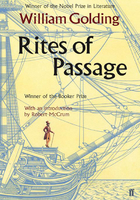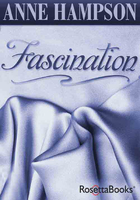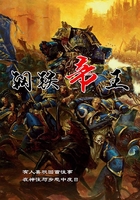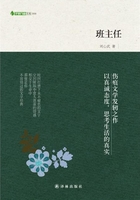A HOT TUB IN LAS VEGAS
When Congressman Charlie Wilson set off for a weekend in Las Vegas on June 27, 1980, there was no confusion in his mind about why he had chosen to stay at Caesars Palace. He was a man in search of pure decadent pleasure, and the moment he walked into the hotel and saw the way the receptionists were dressed, he knew he had come to the right place. No doubt there were other members of the Ninety-sixth Congress who fantasized about orgies and altered states. But had any of them chosen to take the kind of plunge that Charlie Wilson had in mind, you can be sure they would have gone to some trouble to maintain a low profile, if not don a disguise.
Instead Charlie strode into the lobby of Caesars almost as if he were trying to imitate his childhood hero, Douglas MacArthur, majestically stalking ashore to take back the Philippines. He looked in no way ashamed or uncertain about what he was doing in this center of gambling and entertainment.
In truth, it wouldn't have been easy for Wilson to fade into any background. Six foot seven in his cowboy boots, he was handsome, with one of those classic outdoor faces that tobacco companies bet millions on. And he just didn't have the heart or the temperament to operate in the shadows; he felt like a soldier out of uniform when he wasn't wearing his trademark bright suspenders and boldly striped shirts with their custom-designed military epaulets.
Moreover, Wilson had never been able to shake the politician's impulse to take center stage. He covered ground rapidly, shoulders back, square jaw jutting forward. There were no volume controls on his voice as he boomed out greetings with astonishing clarity—and people in the Caesars lobby turned to see who was making such a stir. He looked like a millionaire, but the truth was, after eight years in the Texas legislature and almost as many in the House, he had nothing to show for his efforts but debt and a $70,000-a-year government salary that didn't come near to supporting his lifestyle.
Along the way, however, Wilson had discovered that he didn't need money of his own to lead a big, glamorous life. The rules governing Congress were far looser in those days, and he'd become a master at getting others to pick up the tab: junkets to exotic foreign lands at government expense, campaign chests that could be tapped to underwrite all manner of entertainments, and, of course, the boundless generosity of friendly lobbyists, quick to provide the best seats at his favorite Broadway musicals, dinners at the finest Parisian restaurants, and romantic late-night boat parties on the Potomac.
All of which explains how the tall, charismatic congressman with the blazing eyes and the ever-present smile had grown accustomed to moving about the world with a certain flair. And so as he arrived in Las Vegas, he was observing his hard-and-fast rule that whenever he traveled, he went first class and tipped lavishly. The bellhops and receptionists at Caesars loved this, of course, and Wilson, in turn, appreciated their outfits: little white goddess robes showing lots of cleavage for the girls, and Roman togas and sandals for the bellhops.
In all of Vegas, there was no place like Caesars Palace in 1980. It was the first of the great hotel emporiums to be inspired by the fall of a civilization. Its promoters had had the genius to recognize that the sins of Rome could seem far more enticing than any contemporary offering; and as the young Roman in the toga whipped out the gleaming, two-inch-thick golden key to the Fantasy Suite, he opened a door designed to lead even the most pious of visitors straight to hell.
Charles Nesbitt Wilson comes from a part of the country very familiar with Satan. The Second Congressional District lies in the heart of the Bible Belt, and it may well be that Wilson's Baptist and Pentecostal constituents spend more time worrying about sin and wrestling with the Devil than just about any other group of Americans. JESUS IS THE LORD OF LUFKIN reads the huge sign in the center of the district's biggest city where Wilson maintained a house, on Crooked Creek Road.
The congressman did at least have one dim justification for being in Las Vegas that weekend. He could say he was there to help a constituent: the striking twenty-three-year-old Liz Wickersham, former Miss Georgia, fourth runner-up in the Miss America contest, soon-to-be Playboy cover girl, and, later, host of a CNN talk show that an admirer, Ted Turner, would create specifically for her. The free-spirited Wickersham was the daughter of one of Wilson's main fund-raisers, Charlie Wickersham, who owned the Ford-Lincoln dealership in Orange, Texas, where Wilson always got special deals on his huge secondhand Lincolns. When Liz moved to Washington, her father asked Wilson to show her around, which he did with great enthusiasm. He even took her to the White House, where he introduced her to Jimmy Carter, proudly informing him that Liz Wickersham had won the Miss Georgia beauty contest the very year Carter had been elected president. There was never any question that Wilson would go all out to promote the career of his friend and fund-raiser's attractive young daughter. Now, in Vegas, he was doing just that—orchestrating an introduction to a producer who was casting for a soap opera.
A few months earlier, a young hustler named Paul Brown had approached him about helping to develop a Dallas-type TV series based on the real political goings-on in the nation's capital. It wasn't long before Brown had convinced Wilson to invest most of his savings—$29,000 and to sign on as the show's consultant. The reason for the Las Vegas weekend was to meet a big-time Hollywood producer who, Brown claimed, was eager to back the project.
It was a giddy moment for Wilson and Liz as they sat in the Fantasy Suite talking about a deal that was all but iced. Brown had already persuaded Caesars to comp the congressman's stay, and now he was making Charlie and Liz feel like they were the toasts of the town. He had brought up some pretty showgirls, and before long the whole party was acting as if they were part of a big-time Hollywood mogul's entourage, knocking back champagne as they congratulated one another on the deal that was about to be signed and the role that Liz was about to land.
Two years later, teams of investigators and federal prosecutors would spend weeks trying to reconstruct exactly what the congressman did that night after Paul Brown and the other hangers-on left the Fantasy Suite. It almost landed Wilson in jail. And given the very high wire he later had to walk to avoid indictment, it's quite astonishing to hear the way he cheerfully describes those moments in the hot tub that the investigators were never quite able to document. No matter how much hellish trouble it later caused him, the congressman leaves the unmistakable impression that he relished every single moment of his outrageous escapade.
"It was an enormous Jacuzzi," he recalled. "I was in a robe at first because, after all, I was a congressman. And then everyone disappeared except for two beautiful, long-legged showgirls with high heels. They were a bit drunk and flirtatious and they walked right into the water with their high heels on. … The girls had cocaine and the music was loud—Sinatra, 'My Kind of Town.' We all mellowed out, saying outrageous things to each other. It was total happiness. And both of them had ten long, red fingernails with an endless supply of beautiful white powder. It was just tremendous fun—better than anything you've ever seen in the movies."
As Wilson later framed the episode that almost brought him down, "the Feds spent a million bucks trying to figure out whether, when those fingernails passed under my nose, did I inhale or exhale—and I ain't telling."
Other middle-aged men have brought young women to the Fantasy Suite for activities not unlike Wilson's. But ordinarily there is something a bit desperate and tawdry about such aging pleasure seekers. It's unlikely that any of them would be able to talk about their debauchery in such a way that it would sound almost fresh and innocent. Charlie Wilson, however, had a genius for getting people to judge him not as a middle-aged scoundrel but instead as if he were a good-hearted adolescent, guilty of little more than youthful excess.
This survival skill permitted him to routinely do things that no one else in Congress could have gotten away with. One of the first to marvel at this unique capacity to openly flout the rules was the young Diane Sawyer, who met Wilson in 1980 when she was just beginning her career as a network correspondent. "He was just untamed," she recalled, "tall and gangly and wild—like a kid before they discovered Ritalin. He had this ungoverned enthusiasm, and it extended to women and the world."
The congressman was like no one Sawyer had met in Washington. He was simply outrageous. Sawyer recalled the experience of driving with Charlie in his big old Continental on one of their few dinner dates: "Going down Connecticut Avenue with him, I felt as if we could have been driving into any American Graffiti hamburger place."
When Wilson was first elected to Congress, he'd persuaded a distinguished college professor, Charles Simpson, to leave academia and sign on as his administrative assistant. Simpson says Wilson was the brightest person he's ever worked with: "He had an uncanny ability to take a complex issue, break it down, get all the bullshit out, and deliver the heart of it. There's no question he could have been anything he wanted to be. His goal was to become secretary of defense. Certainly he intended to run for the Senate."
But Simpson gradually came to believe that his boss had a fatal flaw. That failing was perfectly summed up in a fitness report written by Wilson's commanding officer in the navy in the late 1950s: "Charlie Wilson is the best officer who ever served under me at sea and undoubtedly the worst in port."
There was little question in Simpson's mind in those days that his boss had a drinking problem. As with many alcoholics, it was not immediately noticeable; Wilson had an uncanny ability to consume enormous quantities of Scotch and seem unaffected. Also, he was a happy drunk who told wonderful stories and made everyone laugh. On the occasions when drinking would get to him, Simpson says, "Wilson would simply lie down on the floor for an hour, wake up, and act as if he had just had twelve hours of sleep. It was the most unreal thing I'd ever seen. He'd do this at his own parties—just sleep for an hour with everything going on around him, then get up and start again."
Most of the 435 members of Congress lead surprisingly anonymous lives in Washington. They are, of course, celebrities of sorts in their own districts, but the reality of life in the capital is that all but a few will leave Washington without much of anyone knowing they had been there. Wilson, in contrast, had begun to attract a great deal of media attention by the early 1980s, albeit the kind that any other politician would have considered the kiss of death. The gossip columnists called him "Good-Time Charlie," and they had a good time themselves describing the parade of beauty queens he escorted to White House receptions and fancy embassy parties. One Texas newspaper called him "the biggest playboy in Congress." The Washington Post featured a picture of Wilson and House Majority Leader Jim Wright saddled up on white horses, riding down Pennsylvania Avenue to a nightclub Wilson had just invested in. The Dallas Morning News observed that there were more congressmen on the floor of Wilson's disco, élan ("a club for the dashing" was its motto), than you were ever likely to find on the floors of Congress. When challenged about his lifestyle, Wilson replied good-naturedly, "Why should I go around looking like a constipated hound dog? I'm having the time of my life."
In truth, at age forty-seven, in his fourth term in office, Charlie Wilson was completely lost. Public officials are forever doing stupid things, but they don't step into hot tubs with naked women and cocaine unless they are driven to play Russian roulette with their careers. And it was hard not to conclude that this recently divorced congressman was a man in free fall, programmed for disaster.
Wilson himself would later say, "I was caught up in the longest midlife crisis in history. I wasn't hurting anybody, but I sure was aimless." If Charlie Wilson's midlife crisis had thrown him off course, it was nothing compared to the crisis America was going through. The night Wilson checked into Caesars Palace, Ted Koppel had opened his Nightline broadcast with a disturbing refrain: "Good evening. Tonight is the two hundred and thirty-seventh night of captivity for the hostages in Tehran." The United States, with its $200 billion annual defense budget, couldn't even force a taunting Third World nation to turn over fifty hostages. And then, when it finally screwed up its courage to mount a rescue mission, the whole world watched the humiliating spectacle of Desert One, as a U.S. helicopter pilot lost his vision in a blinding dust cloud and rammed into a parked plane, leaving eight soldiers dead and the rescue mission aborted.
Over and over again it was said that "Vietnam syndrome" had infected the spirit of America. And by the summer of 1980 a growing number of conservatives, led by Ronald Reagan, had begun to warn that the Soviet Union might have achieved nuclear superiority, that a "window of opportunity" had been opened in which the Soviets could launch and win a nuclear war. Other voices added to the unease, claiming that the KGB had infiltrated most Western intelligence services and that they were mounting devastatingly effective "disinformation" campaigns, which were blinding America to the danger it faced.
To the president at the time, Jimmy Carter, this kind of extreme worst-case thinking had created what he called "America's paranoid fear of Communism." A born-again Christian, a onetime peanut farmer and former governor of Georgia, Carter had almost no experience in foreign affairs when he ran for president, but he had won over an American public still traumatized by Vietnam and Watergate. The intelligence scandals in the late 1970s had only reinforced the widespread suspicion that the CIA was out of control—a virtual government within the government. Vowing "never to lie" to the American public and to introduce a new morality in Washington, Carter had all but promised an end to the CIA's dirty tricks.
Once in office, President Carter moved to discipline the Agency, coming close to suggesting that it was time to stop conducting covert operations altogether. His handpicked CIA chief, Admiral Stansfield Turner, went a step further and with great fanfare carried out a purge of the Agency's so-called rogue operatives. By the end of 1979, the new ground rules put down by the president and Congress had gone a long way toward altering the very culture of this embattled Agency. Even the CIA's most daring operatives had come to dread the prospect of having their careers destroyed for carrying out missions that Congress might later deem illegal. By Christmas 1979, the CIA's Directorate of Operations had voluntarily all but taken itself out of the dirty-tricks business.
What none of the CIA's leaders could have foreseen was that Jimmy Carter, the president who had gone to such lengths to tame them, was about to be reborn as a Cold War hawk. To say that Jimmy Carter was surprised by the Soviets' Christmas invasion of Afghanistan would be a gross understatement. It radicalized him. It made him suddenly believe that the Soviets might be truly evil and that the only way to deal with them was with force. "I don't know if fear is the right word to describe our reaction," recalls Carter's vice president, Walter Mondale. "But what unnerved everyone was the suspicion that [Soviet president] Brezhnev's inner circle might not be rational. They must have known the invasion would poison everything dealing with the West—from SALT to the deployment of nuclear weapons in western Europe."
Declaring Afghanistan "the greatest foreign policy crisis confronting the United States since World War II," Carter ordered a boycott of the Olympics scheduled for Moscow that summer. He embargoed grain sales to the Soviets and called for a massive defense buildup, including the creation of a Rapid Deployment Force. Reflecting fears about further Russian aggression, he unveiled the Carter Doctrine, committing America to war in the event of any threat to the strategic oil fields of the Middle East. His most radical departure, however, came when he signed a series of secret legal documents, known as Presidential Findings, authorizing the Central Intelligence Agency to go into action against the Red Army.
The CIA's time-honored practice was never to introduce into a conflict weapons that could be traced back to the United States. And so the spy agency's first shipment to the scattered Afghan rebels—enough small arms and ammunition to equip a thousand men—consisted of weapons made by the Soviets themselves that had been stockpiled by the CIA for just such a moment. Within days of the invasion containers from a secretive San Antonio facility were flown to Islamabad, Pakistan, where they were turned over to President Mohammad Zia ul-Haq's intelligence service for distribution to the Afghan rebels. It hadn't been easy for Carter to get Zia to cooperate. Carter had targeted Zia—along with Anastasio "Tacho" Somoza of Nicaragua—in his high-profile human-rights campaign, and had cut off all U.S. aid to and military cooperation with Pakistan. Now, with the Red Army sweeping into Afghanistan, Carter had to do a 180-degree turn to win Zia's approval to use Pakistan as a base of his operations. Zia drove a hard bargain: the CIA could provide the weapons, but they would have to hand them over to his intelligence service for distribution. America's spies would have to operate exclusively through Zia's men.
Along with the first U.S. shipment, the Afghans soon began receiving arms and money from the Egyptians, the Chinese, the Saudis, and other Muslim nations. That response might have sounded impressive in a news dispatch, but the reality on the ground was that a bizarre mix of unsophisticated weapons was being handed over to tribesmen in sandals with no formal military training.
No one in the CIA during those early months had any illusions about the mujahideen's impotence in the face of the Soviet 40th Army. The full might of the Communist empire had descended on this remote, primitive Third World country. Giant Il-76 transport planes were landing in Kabul, the Afghan capital, one after the other, disgorging tens of thousands of combat troops. Columns of tanks were moving in the cities, while MiG fighter jets and helicopter gunships filled the skies. Very quickly the Agency's strategists accepted the invasion as an unfortunate, irreversible fact of life.
These CIA men were trained to be clinical when making geopolitical judgments. To them, there were more important things at stake than the fate of Afghanistan. There were many reasons for giving weapons to the Afghans, even if none of them had anything to do with liberating the country: it was a useful warning to the Soviets not to make any further moves toward the Persian Gulf or into Pakistan; it was a signal that the United States was ready to escalate a covert killing war aimed at Russian soldiers; and because it involved aid to Muslim fundamentalists, it was an extraordinary opportunity to make friends with the Islamic nations that had treated the United States as a virtual enemy because of its support of Israel and the Shah.
What was happening to the Afghan freedom fighters was tragic, of course, but if the truth were known, the CIA strategists saw a silver lining in the horrific accounts of the destruction of villages and the flood of refugees pouring across the border into Pakistan. As long as these "freedom fighters," as Jimmy Carter had begun calling them, continued to fight and the Soviets continued to murder and torture them, it was an unprecedented public relations bonanza for the United States. Never before had the CIA had such a powerful vehicle for blackening the image of the Soviet Union. The Agency began placing heartrending articles in foreign newspapers and magazines; academic studies and books were underwritten. To a certain extent this was unnecessary, however, since every account voluntarily played up the same theme: men of courage, armed only with their faith and their love of freedom, being slaughtered by the full evil might of a Communist superpower.
Curiously, the only ones who didn't see the Afghans as helpless victims were the Russians. One gets a sense of how terrified they were of these tribesmen and their methods of fighting from a story the Red Army used to tell each new group of combat recruits to discourage them from ever considering surrender. The story is said to be true, and although the details changed over the years, it goes something like this: At sunrise on the second day after the invasion a Soviet sentry spotted five bags on the edge of the tarmac at Bagram Air Base, close to the capital. The soldier was not initially concerned—until he pushed his rifle against the first of the burlap bags and noticed blood oozing onto the tarmac. Explosives experts were called in to check for booby traps. What they discovered was far more menacing. Within each bag was a young Soviet soldier wrapped inside out in his own skin. As best the medical examiner could determine, the men had died a particularly gruesome death: their skin had been sliced at the stomach while they were still alive and then pulled up and tied over their heads.
It was a message from the Afghans—an old, stylized warning, one that a famous Afghan chieftain had given to the commander of British troops in 1842. The warrior had been brought before the British general, who began to dictate terms to the tribal leader. Before he could finish, however, the Afghan started to laugh at him.
"Why are you laughing?" the general demanded.
"Because I can see how easy it was for you to get your troops in here. What I don't understand is how you plan to get them out."
One hundred and thirty-eight years later, across the length and breadth of Afghanistan in those first months of 1980, came the mullah's new call to jihad—to take up the holy war. It was not a campaign like the CIA's ongoing Contra war, in which the rich Nicaraguans fled to Miami and the peasants on the border were paid to take up arms. In Afghanistan, the whole nation of Islam responded to the call. In the capital, just a month after the invasion, the mullahs and rebel leaders decided to show the Russians that there was only one true superpower.
As dusk fell the first cry sounded from an elder in a turban: "Allahu Akbar"—God is Great. From the rooftops came the response, until the air was thundering with the sound of hundreds of thousands of Muslim faithful chanting the cry of the jihad: "Allahu Akbar, Allahu Akbar."
Across town in the Kabul Hotel, a Soviet reporter, Gennady Bocharov, was experiencing a terror like none he had ever known. In the streets and on rooftops around the hotel turbaned men and veiled women added to the basic chant: "Marg, marg, marg bar Shurawi!" Death to the Soviets—death, death, death! Bocharov had retreated into his room with a group of Soviet diplomats and the commandant of Kabul. He later wrote about his terror as they discovered that the phone lines had been cut and all they could hear was the swelling chant: "Each of us knew that the fanatics take their time about killing you. We knew that the first thing they do is pierce your forearms with knives. Then they hack off your ears, your fingers, your genitals, put out your eyes."
Bocharov's terror grew when they discovered they had only one grenade, which would not be enough to kill them all before the Afghans arrived with their knives. "I found myself shivering convulsively, uncontrollably," he reported. "We heard the nearby yells, breathed the smoke of nearby fires, and prayed to Fate to grant us instant death." Before the journalist and his friends had to face this specter, a company of Soviet paratroopers arrived to rescue them. By morning, a much-sobered Red Army was back in control, but the night of "Allahu Akbar" had been a rite of passage for the Afghans; they were now all in this together, to the death.
In the following months, the Afghan people would suffer the kind of brutality that would later horrify the world when the Serbs began their ethnic cleansing. Soviet tanks and jets would lay waste to villages thought to be supporting guerrillas. Before long, millions of Afghans—men, women, and children—would begin pouring out of the country, seeking refuge in Pakistan and Iran.
In those first months of the war Dan Rather made a dramatic trek across the border at a time when the world's attention had already shifted away from the sad story. Among other things, Rather was following up on reports that the CIA had already begun arming the mujahideen. Like most people, Rather assumed that if the CIA was now involved, they meant business. He disguised himself as a mujahid, and the curious sight of the familiar anchor dressed up as an Afghan in his 60 Minutes report prompted the Washington Post's Tom Shales to dub him "Gunga Dan." The satirical account of his foray into this dangerous war zone diverted attention from Rather's unexpected and accurate conclusion: the CIA's support to the Afghans was almost meaningless. The mujahideen were facing Soviet tanks and flying gunships with World War I rifles and little ammunition.
Charlie Wilson was stunned by Rather's report. He admired his fellow Texan for having the courage to risk his life to expose what Wilson saw as a scandal. Once again, his president was failing to stand up to the test of history. Given the false hope of meaningful U.S. support, there seemed to be nothing in the future for these anti-Communist freedom fighters but defeat.
It was at this moment of despair for the mujahideen, in the early summer of 1980, that Wilson walked off the floor of the House into the Speaker's Lobby, a rich, wood-paneled room that stretches along the full length of the House floor. A Teletype at one end spewed out stories from AP, UPI, and Reuters. Wilson was a news junkie, and he reached down and began reading a story datelined from Kabul.
The article described hundreds of thousands of refugees fleeing the country as Soviet helicopter gunships leveled villages, slaughtered livestock, and killed anyone who harbored the guerrillas. What caught Wilson's attention, however, was the reporter's conclusion that the Afghan warriors were refusing to quit. The article described how they were murdering Russians in the dead of night with knives and pistols, hitting them over the head with shovels and stones. Against all odds, there was a growing rebellion under way against the Red Army.
As he read the dispatch, Wilson found himself thinking of the Alamo and the letter Colonel Travis wrote to the people of Texas just before Santa Anna attacked: "The enemy has demanded surrender. I have answered the demand with a cannon shot. I shall never surrender or retreat."
The Texas congressman had first gone to the Alamo when he was six years old. He had been there many times since, and each time it had left him teary. Most Americans can't understand what the Alamo means to Texans. It's like Masada to the Israelis. It sums up what it means to be a man, what it means to be a patriot, what it means to be a Texan. Jim Bowie, Davy Crockett, and all who stayed with Travis that day paid the ultimate price, but they had bought time for Sam Houston to mobilize the Texas army to defeat Santa Anna. That is what brave men did: win time for others to do the right thing.
It would have been a sobering insight for the Communist rulers if they could have followed what happened in the few minutes after Wilson finished reading the Associated Press dispatch. The mysterious force in the U.S. government that was destined to hound the Red Army with a seemingly limitless flood of ever more lethal and sophisticated weapons was about to be activated.
No one, however, was paying attention, not even in the American government, when Charlie Wilson picked up a phone and called the Appropriations Committee staffer who dealt with "black appropriations," the CIA funds. The man's name was Jim Van Wagenen, a former college professor and onetime FBI agent. Wilson had just been named to the Defense Appropriations subcommittee. He was now part of the band of twelve men in the House responsible for funding CIA operations.
The congressman knew enough about the eccentric workings of the subcommittee to know when a member can act alone to fund a program. "How much are we giving the Afghans?" he asked Van Wagenen.
"Five million," said the staffer.
There was a moment's silence. "Double it," said the Texan.















